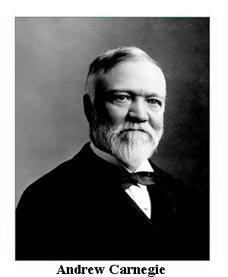According data from surveys by the National Opinion Research Center, for example, people in the top fifth of income earners are about 50% more likely to say they are "very happy" than people in the bottom fifth, and only about half as likely to say they are "not too happy."In large, sudden doses, unfortunately, money can make people dead. A December 5 New York Times article reports on the short, unhappy lives of Mack W. Metcalf, a Kentucky forklift driver, and his estranged second wife, Virginia Merida, the daughter of a drug dealer.
There is, however, generally very little change in the average level of happiness in populations getting richer over the years. For instance, the percentage of the U.S. population saying it was "very happy" in 1972 was exactly the same as it was in 2002: 30.3%. Social critics of "consumerism" explain this by claiming that what makes rich people happy is not money per se, but rather the fact that they have more of it than others . . . .
Five years ago, Metcalf and Merida met wealth head on, sharing a $34 million lottery jackpot.
Years of blue-collar struggle and ramshackle apartment life gave way almost overnight to limitless leisure, big houses and lavish toys. Mr. Metcalf bought a Mount Vernon-like estate in southern Kentucky, stocking it with horses and vintage cars. Ms. Merida bought a Mercedes-Benz and a modernistic mansion overlooking the Ohio River, surrounding herself with stray cats.Three years later, Metcalf was dead of complications relating to alcoholism. On the day before Thanksgiving, Merida's decomposing body was found; authorities suspect death by drug overdose. Only hint of a silver lining: $500,000 was salvaged to create a trust fund for Metcalf's daughter by his first marriage.
Wealth acquired more conventionally isn't necessarily fatal but, as Ruth Marcus writes in the Washington Post, the wretched excesses of the new Gilded Age are not a pretty sight:
Washington, of course, has always had its moneyed denizens . . . . What's different about Washington in this latest Gilded Age is the amount of money sloshing around this city -- this region, actually -- and the ostentatious display thereof . . .
The result is a strange version of increasing income inequality . . .The wretched excesses of the former American University president and his wife, for instance, can be attributed in part to their constant proximity to wealthy donors and immersion in Washington's social scene. If everyone else is having their drivers take them to the luncheon with the ambassador's wife, how could Nancy Ladner drive her own car -- even if it was a black 2003 Infiniti Q45? If everyone else has a private chef, why not have yours create a 13-course dinner to celebrate your son's engagement? Why not start with White Truffle & Porcini Egg Custard & American Sturgeon Caviar?
Back in the original Gilded Age, one of the most passionate critics of wretched excess was Andrew
 Carnegie. Above and beyond the "competence" needed to live in independence and comfort, Carnegie believed wealth should be used for the public good. This charitable work, he insisted, should be done during the wealth-builder's lifetime, not by bequest:
Carnegie. Above and beyond the "competence" needed to live in independence and comfort, Carnegie believed wealth should be used for the public good. This charitable work, he insisted, should be done during the wealth-builder's lifetime, not by bequest:Knowledge of the results of [charitable] legacies bequeathed is not calculated to inspire the brightest hopes of much posthumous good being accomplished. The cases are not few in which the real object sought by the testator is not attained, nor are they few in which his real wishes are thwarted. In many cases the bequests are so used as to become only monuments of his folly.Professor Brooks tells us why you should take Carnegie's point seriously: "Donating money (and time) is one of the best ways to buy happiness."
People who donate to charity are 40% more likely to say they are "very happy" than non-donors. Psychologists have even tested whether charity makes people happy using randomized, controlled experiments -- the same procedure used for testing pharmaceuticals, except that, instead of administering a drug to one group and a placebo to the other, researchers randomly assign one group to act charitably toward another. The results are clear: Givers of charity earn substantial mental and physical health rewards, even more than do the recipients of charity -- empirical evidence that it is indeed more blessed to give than to receive.Ready to help your clients help themselves to happiness? Then get to work on those charitable trusts, family foundations and donor-advised funds!







No comments:
Post a Comment